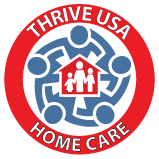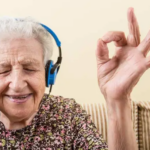Posts Tagged ‘Maryland’
5 Tips to Stay Independent as You Age
Maintaining your independence as you get older can be challenging. You may discover that you require more assistance with day-to-day activities or have less energy for household tasks. But, there are steps you may do to maintain your independence for as long as possible. Here are some tips for living independently and safely. Exercise Your Body One of the best ways to keep your independence as you age is to exercise. It doesn’t take much to get started, and it can be just as effective whether you work out on your own, with a personal trainer, or in a group…
Home Care-Assisting in Care for Older Veterans
There are just under 2 million World War II veterans left in the United States, and they are quickly aging. Many individuals of the “Greatest Generation” who are dealing with the challenges of aging require care and support with daily chores. Home care can be an excellent option for assisting elderly veterans in receiving superior care and maintaining the quality of life they deserve. Veterans can benefit from home care services in a variety of ways. Professional companion care, such as conversation and company, as well as household duties such as cooking, cleaning, and laundry; and non-medical personal care, such…
6 Fun Spring Activities for Seniors
The spring months bring about warmer temperatures and the opportunity for seniors to enjoy a variety of outdoor activities. The days are getting longer and warmer and you may be feeling energized by the change in weather. So how can you make the most of the warmer weather? Here are some suggestions to get you and your loved ones outside this spring! Take Up Gardening Gardening is a fantastic way for seniors to get some vitamin D and reduce stress. Your loved one can build muscles, develop skills in critical thinking, and take in the beautiful spring air while planting…
What’s the Difference Between Companion Care and Personal Care?
You’ve probably heard of “personal care” and “companion care” if you’re looking for non-medical home care for a loved one. Although they may share similarities, many people mistakenly use these names interchangeably. They are, however, not the same. You may choose the best in-home care assistance for your loved ones by being aware of the definitions and advantages of personal care and companion care. This article will help you differentiate between the two and help you understand which one you need. What is Personal Care? Personal care is intended for seniors who require assistance with daily living tasks (ADLs). Help…
Health Benefits of Pets for Seniors
Many family caregivers know that the seniors they care for may suffer from loneliness and depression, which can lead to long-term physical health problems. But did you know that you might be able to get some relief from this loneliness at the local animal shelter or pet store? American pet owners adore them! According to recent surveys, there are pets in two out of every three American homes, a 20% increase in the last thirty years. The health advantages of dogs for seniors and the outpouring of love for our furry friends are real and long-lasting, according to medical studies. …
Common Mobility Aids for Seniors Aging in Place
Mobility aids are devices that help people with mobility impairments to move around more easily and safely. They include a wide range of products, such as canes, walkers, wheelchairs, and mobility scooters. For seniors who want to age in place, mobility aids can make a significant difference in their quality of life by allowing them to stay independent, stay active, and move around their homes and communities with greater ease. One of the main benefits of mobility aids is that they help seniors maintain their independence by reducing their reliance on caregivers or family members for assistance with everyday tasks….
A Day in the Life of a Thrive USA Caregiver
Caring for older family members who are sick or aging is demanding. You can decide what support and assistance your loved ones need by learning more about what a typical caregiver’s day entails. When you start caring for a sick older relative, you will quickly realize that there is no such thing as a routine weekday. Caregivers may care for numerous clients in a week or only one client they care for around the clock. Some people may have to assist their patients in traveling to a hospital for treatment, running errands, or helping with household chores and providing companionship …
6 Safety Tips For Senior Holiday Travel
The holiday season has arrived, and for most people, it means a lot of traveling. Even though it would be lovely if everyone in your family could just visit you every year, that isn’t always feasible. Because you’ll most likely be planning a trip in the near future, we’ve created a list of holiday travel tips for seniors to ensure you arrive safely. Schedule a Doctor’s Appointment This is the most important tip to follow! Your doctor will be able to clear you for travel and will be able to provide you with the necessary vaccines and medication to keep…
What is Music Therapy and 5 Ways it Benefits Seniors
You don’t have to be a professional musician to experience the pleasure of hearing your favorite song. Music has the power to transport us back in time, evoking memories and feelings from our past. Hearing a song you enjoy can provide comfort and cheer during difficult times and turn a bad mood around almost instantaneously. The majority of adults aged 65 to 85 are known to have at least one chronic ailment, such as heart disease, diabetes, cancer, or arthritis. A number of age-related changes in physical, mental, and emotional well-being can occur in the aging population. This is why…
Care Following a Hospital Discharge
A journey to the hospital might last several days for an older adult, and medical procedures can bring a slew of additional caregiving tasks that persist long after the patient returns home. Older adults frequently require higher levels of care during a hospital stay, which translates into higher care needs after discharge. It is key that family caregivers completely understand what is required as soon as possible, as this will better equip them to coordinate the care required to keep their loved ones safe and recuperate. Preparation is Key Caring for a loved one following a hospital discharge can be…












